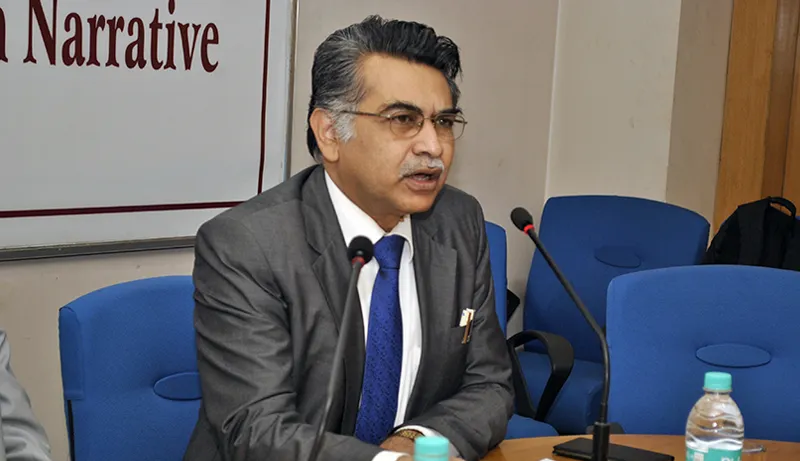Municipal governance has once again taken centre stage in Indian polity. There is a current re-shaping of narratives within the national government to make local governance effective. It is realised that deficit in the delivery of urban services results in chaos, which forms the basis for citizens doubting the functioning of the local government.

"Municipal governance" has once again taken centre stage in Indian polity. There is a current re-shaping of narratives within the national government to make local governance effective. It is realised that deficit in the delivery of urban services results in chaos, which forms the basis for citizens doubting the functioning of the local government.
In order to understand the issues involved in the functioning of municipal governments and to discuss reform measures, Observer Research Foundation along with the German International Cooperation organised a half-day roundtable discussion on November 25, 2014 in New Delhi, titled "Municipal Governance: The Indian Narrative."
In his opening remarks, Prof. P.S.N. Rao from the School of Planning and Architecture, New Delhi, analysed the peculiar ways in which municipal bodies function. He enquired whether these bodies should be treated as the nurseries of political democracy or as organs of state administration. He observed that in most cases it is the state bureaucrats who control civic agencies, resulting in constant erosion of the functional domain of these bodies, irrespective of the 74th Constitutional Amendment Act, which tried to institutionalise them.
He praised the devolution of funds to the Urban Local Bodies (ULBs), which have improved the finances of these bodies. But there is a yawning gap between what is required and what is mobilised, he said.
Mr. Bikas Ranjan Bhattacharya, ex-Mayor of Kolkata Municipal Corporation, presented a historical perspective of the growth of municipal governance in India since the British days. He stated that the British used their administrative powers to benefit their own people while ignoring the needs of the native population. This led to emergence of nationalist feelings that ultimately led to the demand for local-self/municipal government, which aimed at ensuring that the common man should be the beneficiary of the services being provided.
Mr. Bhattacharya highlighted the efforts of Netaji Subhash Chandra Bose, who advocated for inclusion of primary education and the provision of health services as an integral part of local governance, largely ignored by colonial rulers.
Mr. Bhattacharya also described the radical changes that have occurred over the course of time in Kolkata. For instance, municipal law introduced for the first time, the concept of ’cabinet form of government’ through the Mayor-in-Council model in the ULBs. Also, for the first time, the tenure of the Mayor was increased from one year to five years so as to improve the quality of governance.
But he noted that in modern times, despite being constitutionally empowered, India’s municipal government lacks mechanisms to provide sufficient housing, healthcare, sanitation and livelihood, largely due to a paucity of funds, which it is able to generate only through property tax and licence fees. Municipal governments certainly have their task cut out as they continue to witnesses a consistent influx of people moving from villages to the cities to earn a better living, it was added.
Prof. Chetan Vaidya, the Director of the School of Planning and Architecture in New Delhi discussed three different issues. First, he advocated for an amendment to the 74th Constitution Amendment Act by way of including a definitive list of resources for the local bodies which would empower them to deliver services. Secondly, he suggested for strengthening of Area Sabhas by empowering them financially. Finally, he supported in-situ slum upgradation instead of full-fledged housing, as the former would be more beneficial to the people, provided they are offered some technical support and access to micro finance, besides guiding them to upgrade their houses.
Mr. Ajay Suri, Regional Advisor at Cities Alliance, New Delhi, raised concerns regarding municipal governance, as he had witnessed no improvement despite several attempts been made to do so. He finds no one in-charge of the cities or anyone accountable to the citizens for the delivery of services. He suggested that even before worrying about tax collection shares, the fundamentals need to be reworked by looking at the entire institutional, legal and financial framework of the municipal government.
He advocated for creation of an urban forum in cities, similar to that of Peer Experience and Reflective Learning Network (PEARL), which can influence national or state policies on urban development while putting cities at the core of planning.
Giving the concluding remarks, Dr. Regina Dube, Head of the GIZ Sustainable Urban Habitat Program, stressed on the need to bridge the divide between the bureaucrats and the Ministries, so as to facilitate better functioning of the municipalities.
She insisted that, in order to reap the benefits of demographic dividend, Indian government should facilitate the voice of the people in the cities by making them a part of political process and debate, which ultimately impacts their daily life.
(This report is prepared by Manish Vaid, Junior Fellow, Observer Research Foundation, Delhi)
The views expressed above belong to the author(s). ORF research and analyses now available on Telegram! Click here to access our curated content — blogs, longforms and interviews.




 PREV
PREV

